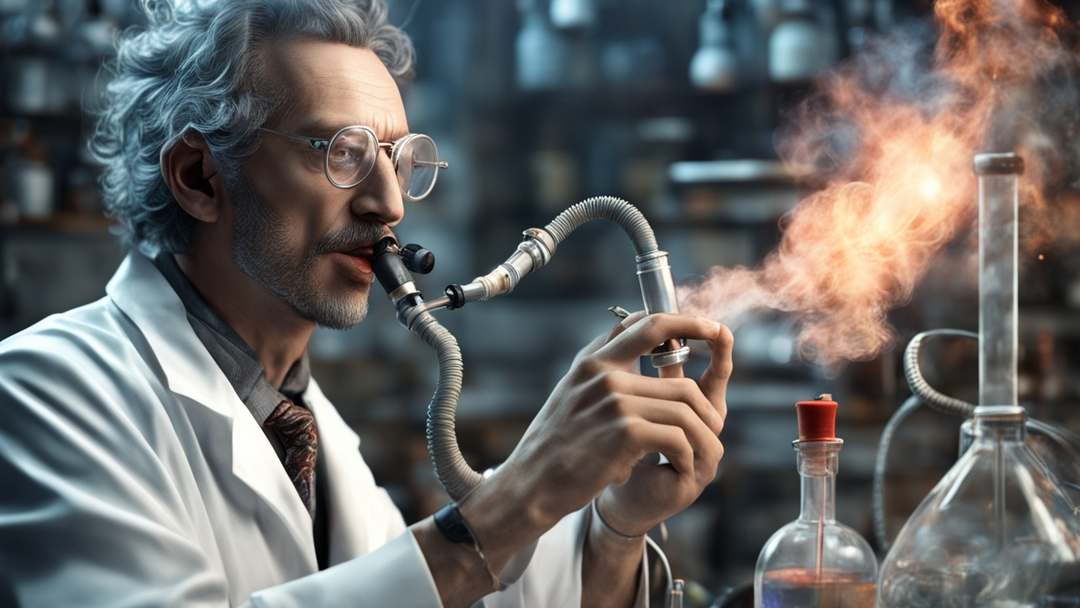Federally funded researchers have uncovered two methods to divide and diversify the difference between hemp and cannabis to assist to crime labs.
Because Cannabis is still a crime and Hemp is not…
The Controlled Substance Act of 1970 classified the plant cannabis, which was historically classified as either marijuana or hemp, as an illegal drug, a Schedule I controlled substance with a high potential for abuse and no FDA-approved medical use in the United States.
For more than 50 years, hundreds of thousands of people were arrested and imprisoned for possessing it.
317,793 Americans are arrested annually for possession of marijuana. Easy Target – Easy Money.
The Farm Bill of 2018 changed this straightforward classification of cannabis. The bill legalized the form of cannabis classified as hemp, while the form classified as marijuana remained illegal.
The task of determining the distinction has been assigned to law enforcement and forensic laboratories, a responsibility that has proven to be challenging, time-consuming, and costly.
Federally funded researchers have made significant advancements in accurately distinguishing between marijuana and hemp by precisely analyzing the THC levels found in flower and edibles.
The National Institute of Justice (NIJ), an entity within the “Justice” Department, is actively promoting the results of two research projects that it funded, both centered around cannabis lab testing. These findings are now being shared exclusively with select law enforcement agencies.
The aim of the initiatives was to streamline the testing process in order to address the increasing crime lab backlogs caused by the federal legalization of hemp with up to 0.3 percent THC under the 2018 Farm Bill.
This legalization has complicated cannabis-related cases, and thus the initiatives were implemented to help resolve these challenges.
Have your rights been violated?
Have your driving priviledges been revoked?
Has your professional license been suspended?
Second Amendment rights taken away?
Have you been charged with a crime?
Call our office to see if we can help
Komorn Law 248-357-2550
Current testing methods are unable to accurately determine the exact amount of THC in a sample, as stated in the recent update by NIJ. However, the researchers they have funded have achieved a significant breakthrough.
Using gas chromatography-mass spectrometry (GC-MS) and direct analysis in real time-high-resolution mass spectrometry (DART-HRMS), they are now able to isolate the THC content, along with other cannabinoids.
This discovery marks a significant advancement in our ability to analyze and understand the composition of cannabis samples.
In the government, everything is go spend more money and if that doesn’t work, it’s go spend more money and if that doesn’t work spend more money and so on and so on.

Related Articles
No Results Found
The page you requested could not be found. Try refining your search, or use the navigation above to locate the post.
More Posts
AVVO Ratings and Reviews Update Aug 2016
Michael Komorn’s reviews 5.0 stars - 23 Total Avvo Rating: 10.0 out of 10 Cases dismissed 5.0 stars Posted by Ryan August 24, 2016 I had two charges in Wayne county. I was facing 6 years in prison. Michael was very informative and reassuring...

US Dept of Justice letter regarding prosecution for marijuana
Attorney General Eric Holder's speech regarding dropping mandatory minimums for many drug crimes is already making an impact. Read the letter from the DOJ

Clio marihuana dispensary fighting Genesee County Prosecutor’s office in court
CLIO (WJRT) - (04/25/16) - A Mid-Michigan marihuana dispensary is fighting the Genesee County Prosecutor's office in court after FANG shut them down. The owner of the Clio dispensary says warrants weren't valid and he wants his business back open. Attorneys...

New Roadside Drug Test
What is the law? The Michigan legislature has passed into law a one-year pilot program set up in five counties that allows for Michigan State Police to perform roadside drug tests. The way this will work is if a driver gets pulled over for a traffic offense, in...

Why Are Michigan Prosecutors Reassessing Their Cases Against Medical Marijuana Patients?
Trying to understand why prosecutors in St. Clair County, Michigan, suddenly decided to drop their case against Ginnifer Hency, a medical marijuana patient and caregiver, and return the property that police seized from her home, I obtained several court documents from...

Attorney: Crime labs ‘falsified’ marijuana reports
A Southfield lawyer alleges the Michigan State Police crime labs have “falsified lab reports on marijuana statewide” and he’s asking a judge to dismisses charges lodged against a client. Michael Komorn, who also represents defendants in Livingston County, said...

Clio marihuana dispensary fighting Genesee County Prosecutor’s office in court
CLIO (WJRT) - (04/25/16) - A Mid-Michigan marihuana dispensary is fighting the Genesee County Prosecutor's office in court after FANG shut them down. The owner of the Clio dispensary says warrants weren't valid and he wants his business back open. Attorneys...

Medical marijuana patients reunited with son after lengthy court battles, unfounded drug charges
SPRING LAKE, Mich. -- After 18 months, a Spring Lake family's son is out of foster care and reunited with his parents. Yet the fight to be together, through court battles and serious drug charges despite being card-carrying medical marijuana patients, still haunts...

Komorn Law Secures Release Of Lorincz Child From CPS in Marijuana Custody Case
“This is one of those cases in an attorney’s career that is not easily forgotten, and is a reminder to me of the reason I became an attorney.” – Michael Komorn, attorney from Komorn Law and recipient of the Michigan Bar Association Right to Counsel Award for 2015....

Komorn AVVO Reviews
Research no further, call Komorn. 5.0 stars Posted by a client December 31, 2015 Hired attorney After an incident involving my medical marihuana grow, I found myself being charged with 2 manufacturing felonies. Upon a recommendation from an associate, I retained...








